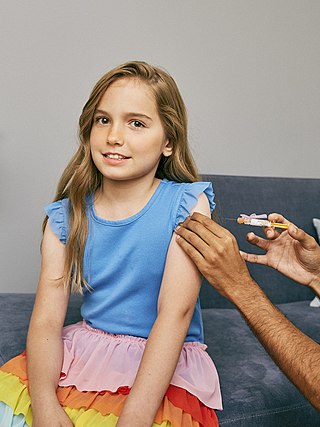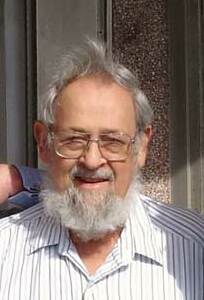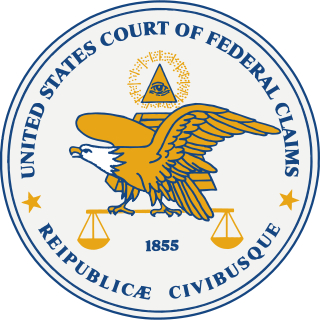Related Research Articles

Vaccination is the administration of a vaccine to help the immune system develop immunity from a disease. Vaccines contain a microorganism or virus in a weakened, live or killed state, or proteins or toxins from the organism. In stimulating the body's adaptive immunity, they help prevent sickness from an infectious disease. When a sufficiently large percentage of a population has been vaccinated, herd immunity results. Herd immunity protects those who may be immunocompromised and cannot get a vaccine because even a weakened version would harm them. The effectiveness of vaccination has been widely studied and verified. Vaccination is the most effective method of preventing infectious diseases; widespread immunity due to vaccination is largely responsible for the worldwide eradication of smallpox and the elimination of diseases such as polio and tetanus from much of the world. However, some diseases, such as measles outbreaks in America, have seen rising cases due to relatively low vaccination rates in the 2010s – attributed, in part, to vaccine hesitancy. According to the World Health Organization, vaccination prevents 3.5–5 million deaths per year.

Thiomersal (INN), or thimerosal, is an organomercury compound. It is a well-established antiseptic and antifungal agent.

Bernard Rimland was an American research psychologist, writer, lecturer, and influential person in the field of developmental disorders. Rimland's first book, Infantile Autism, sparked by the birth of a son who had autism, was instrumental in changing attitudes toward the disorder. Rimland founded and directed two advocacy groups: the Autism Society of America (ASA) and the Autism Research Institute. He promoted several since disproven theories about the causes and treatment of autism, including vaccine denial, facilitated communication, chelation therapy, and false claims of a link between secretin and autism. He also supported the ethically controversial practice of using aversives on autistic children.
Thiomersal is a mercury compound which is used as a preservative in some vaccines. Anti-vaccination activists promoting the incorrect claim that vaccination causes autism have asserted that the mercury in thiomersal is the cause. There is no scientific evidence to support this claim. The idea that thiomersal in vaccines might have detrimental effects originated with anti-vaccination activists and was sustained by them and especially through the action of plaintiffs' lawyers.
A vaccine adverse event (VAE), sometimes referred to as a vaccine injury, is an adverse event caused by vaccination. The World Health Organization (WHO) knows VAEs as Adverse Events Following Immunization (AEFI).
Arthur Krigsman is a pediatrician and gastroenterologist best known for his controversial research in which he attempted to prove that the MMR vaccine caused diseases, especially autism. He specializes in the evaluation and treatment of gastrointestinal pathology in children with autism spectrum disorders, and has written in support of the diagnosis he calls autistic enterocolitis. The original study that tied the MMR vaccine to autism and GI complaints conducted by one of Krigsman's associates has been found to be fraudulent, and the diagnosis of "autistic enterocolitis" has not been accepted by the medical community.

The Office of Special Masters of the U.S. Court of Federal Claims, popularly known as "vaccine court", administers a no-fault system for litigating vaccine injury claims. These claims against vaccine manufacturers cannot normally be filed in state or federal civil courts, but instead must be heard in the U.S. Court of Federal Claims, sitting without a jury.

Mady Hornig is an American psychiatrist and an associate professor of epidemiology at Columbia University's Mailman School of Public Health. A physician-scientist, her research involves clinical, epidemiological, and animal model research on autism and related neurodevelopmental conditions. She directs the clinical core of an international investigation of the role of Borna disease virus in human mental illness and participates as a key investigator for the Autism Birth Cohort (ABC) project, a large prospective epidemiological study, based in Norway, that is identifying how genes and timing interact with environmental agents preceding the onset of autism spectrum diagnoses. In 2006, she was appointed as guest professor at the school of basic medical science of Beijing University in Beijing, China.
Claims of a link between the MMR vaccine and autism have been extensively investigated and found to be false. The link was first suggested in the early 1990s and came to public notice largely as a result of the 1998 Lancet MMR autism fraud, characterised as "perhaps the most damaging medical hoax of the last 100 years". The fraudulent research paper authored by Andrew Wakefield and published in The Lancet falsely claimed the vaccine was linked to colitis and autism spectrum disorders. The paper was retracted in 2010 but is still cited by anti-vaxxers.
Mark R. Geier is an American former physician and controversial professional witness who testified in more than 90 cases regarding allegations of injury or illness caused by vaccines. Since 2011, Geier's medical license has been suspended or revoked in every state in which he was licensed over concerns about his autism treatments and his misrepresentation of his credentials to the Maryland Board of Health, where he falsely claimed to be a board-certified geneticist and epidemiologist.

Andrew Jeremy Wakefield is a British anti-vaccine activist, former physician, and discredited academic who was struck off the medical register for his involvement in The Lancet MMR autism fraud, a 1998 study that fraudulently claimed a link between the measles, mumps, and rubella (MMR) vaccine and autism. He has subsequently become known for anti-vaccination activism. Publicity around the 1998 study caused a sharp decline in vaccination uptake, leading to a number of outbreaks of measles around the world. He was a surgeon on the liver transplant programme at the Royal Free Hospital in London and became senior lecturer and honorary consultant in experimental gastroenterology at the Royal Free and University College School of Medicine. He resigned from his positions there in 2001, "by mutual agreement", then moved to the United States. In 2004, Wakefield co-founded and began working at the Thoughtful House research center in Austin, Texas, serving as executive director there until February 2010, when he resigned in the wake of findings against him by the British General Medical Council.

Michelle Cedillo v. Secretary of Health and Human Services, also known as Cedillo, was a court case involving the family of Michelle Cedillo, an autistic girl whose parents sued the United States government because they believed that her autism was caused by her receipt of both the measles-mumps-and-rubella vaccine and thimerosal-containing vaccines. The case was a part of the Omnibus Autism Proceeding, where petitioners were required to present three test cases for each proposed mechanism by which vaccines had, according to them, caused their children's autism; Cedillo was the first such case for the MMR-and-thimerosal hypothesis.
Hurair Vasken Aposhian was a Ph.D. toxicologist and an emeritus professor of molecular and cell biology at the University of Arizona, a post he held beginning in 1975. He is also a former professor of pharmacology at the medical school at said university. He received his bachelor's degree in chemistry, at Brown University, 1948. He received a master's degree and a PhD in physiological chemistry at the University of Rochester, where he published some scientific studies about the synthesis of isoalloxazine ring-containing compounds. He did a postdoctoral with Nobel Laureate Arthur Kornberg in the department of biochemistry at Stanford University School of Medicine. He has done sabbatical scholar-in-residence at MIT and at the University of California at San Diego. He is best known for his pioneering work on Succimer and Unithiol in the treatment of arsenic, mercury, lead and other heavy metals leading to FDA approval of succimer in childhood lead poisoning at levels over 40 ug/dl. Previous posts he had held include at Vanderbilt, Tufts University, and the University of Maryland. His views about mercury in vaccines and in dental amalgams go against the consensus of the medical community and are controversial.
Max Wiznitzer is the director of the Rainbow Autism Center at Rainbow Babies and Children's Hospital in Cleveland. He has worked there since 1986. Wiznitzer is also an associate professor of pediatrics and neurology at Case Western Reserve University.
Jon Poling is an American physician currently practicing in Athens, Georgia where he has worked at Athens Neurological Associates since 2001. He has also worked at Athens Regional Medical Center as the medical director of their apheresis unit since 2002. His area of expertise is autoimmune neurological disorders such as multiple sclerosis and neuromuscular disorders such as neuropathy or Myasthenia Gravis. He is the father of Hannah Poling, who received an injury compensation from the VICP in 2008 because Hannah manifested encephalopathy after being vaccinated by MMR. Hannah had underlying mitochondrial disease, which exacerbated her symptoms.
Kreesten Meldgaard Madsen is a Danish epidemiologist and expert on infectious diseases who, as of 2003, worked at the Danish Epidemiology Science Centre at Aarhus University. He is known for leading two studies that found no link between either the MMR vaccine and autism or thimerosal and autism. The first of these studies pertained to MMR and was published in 2002; the second pertained to thimerosal and was published in 2003. Both of these studies received considerable media attention.
The Lancet MMR autism fraud centered on the publication in February 1998 of a fraudulent research paper titled "Ileal-lymphoid-nodular hyperplasia, non-specific colitis, and pervasive developmental disorder in children" in The Lancet. The paper, authored by now discredited and deregistered Andrew Wakefield, and twelve coauthors, falsely claimed causative links between the MMR vaccine and colitis and between colitis and autism. The fraud was exposed in a lengthy Sunday Times investigation by reporter Brian Deer, resulting in the paper's retraction in February 2010 and Wakefield being struck off the UK medical register three months later. Wakefield reportedly stood to earn up to $43 million per year selling diagnostic kits for a non-existent syndrome he claimed to have discovered. He also held a patent to a rival vaccine at the time, and he had been employed by a lawyer representing parents in lawsuits against vaccine producers.
Extensive investigation into vaccines and autism spectrum disorder has shown that there is no relationship between the two, causal or otherwise, and that the vaccine ingredients do not cause autism. Vaccinologist Peter Hotez researched the growth of the false claim and concluded that its spread originated with Andrew Wakefield's fraudulent 1998 paper, with no prior paper supporting a link.

Vaccination policy of the United States is the subset of U.S. federal health policy that deals with immunization against infectious disease. It is decided at various levels of the government, including the individual states. This policy has been developed over the approximately two centuries since the invention of vaccination with the purpose of eradicating disease from the U.S. population, or creating a herd immunity. Policies intended to encourage vaccination impact numerous areas of law, including regulation of vaccine safety, funding of vaccination programs, vaccine mandates, adverse event reporting requirements, and compensation for injuries asserted to be associated with vaccination.
JABS is a British pressure group launched in Wigan in January 1994. Beginning as a support group for the parents of children they claim became ill after the MMR vaccine, the group is currently against all forms of vaccination.
References
- ↑ Decoteau, Claire Laurier; Underman, Kelly (18 August 2015). "Adjudicating non-knowledge in the Omnibus Autism Proceedings". Social Studies of Science. 45 (4): 471–500. doi: 10.1177/0306312715600278 . PMID 26502656. S2CID 28974481.
- 1 2 Keelan, Jennifer; Wilson, Kumanan (17 October 2011). "Balancing Vaccine Science and National Policy Objectives: Lessons From the National Vaccine Injury Compensation Program Omnibus Autism Proceedings". American Journal of Public Health. 101 (11): 2016–2021. doi:10.2105/AJPH.2011.300198. ISSN 0090-0036. PMC 3222385 . PMID 21940934.
- ↑ Gordon, Shemin (2008). "Mercury Rising: The Omnibus Autism Proceeding and What Families Should Know before Rushing out of Vaccine Court". American University Law Review. 58 (2).